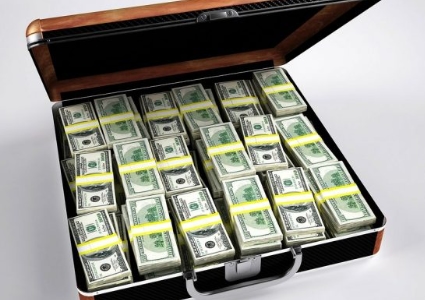Polling

Suggest an important issue not listed in this sub-category (). (Maximum 60 Characters)
Public funding of elections

Many people say that most of the problems with our political system result from the large sums of money needed to finance election campaigns. About $6.5 billion was spent during the 2016 presidential election, while an unprecedented $14 billion was spent in 2020. Most campaign funds are spent on radio, television and Internet advertising. Critics of this system claim the candidate who airs the most television commercials will often win an election regardless of any other factor. Politicians often complain that fund-raising activities now take up more of their time than state business. Some advocates have proposed that the funding for these campaigns should be provided by taxpayers rather than special interest groups.
Advocates claim the public’s funding of election campaigns would help rid our politics of undue influence, level the playing field between candidates, and control the amount of money spent in these contests. Currently, there exists a system for the partial public funding of presidential elections. This system matches the first $250 a person contributes to an individual, a party convention and the general election campaign. To receive subsidies, candidates must qualify by privately raising $5,000 in at least 20 states, and agree to limit their spending according to a preset formula. Candidates that refuse these matching funds are free to spend as much privately-raised money as they wish. Those who support public campaign funding say incentives need to be increased in order for more candidates to choose the public funding option.
Pending Resolution: H.J.Res.13 - Proposing an amendment to the Constitution of the United States relating to the authority of Congress and the States to regulate contributions and expenditures intended to affect elections and to enact public financing systems for political campaigns.
Sponsor: Rep. Adam Schiff (CA)
Status: House Committee on the Judiciary
Chair: Rep. Jim Jordan (OH)
Advocates claim the public’s funding of election campaigns would help rid our politics of undue influence, level the playing field between candidates, and control the amount of money spent in these contests. Currently, there exists a system for the partial public funding of presidential elections. This system matches the first $250 a person contributes to an individual, a party convention and the general election campaign. To receive subsidies, candidates must qualify by privately raising $5,000 in at least 20 states, and agree to limit their spending according to a preset formula. Candidates that refuse these matching funds are free to spend as much privately-raised money as they wish. Those who support public campaign funding say incentives need to be increased in order for more candidates to choose the public funding option.
Pending Resolution: H.J.Res.13 - Proposing an amendment to the Constitution of the United States relating to the authority of Congress and the States to regulate contributions and expenditures intended to affect elections and to enact public financing systems for political campaigns.
Sponsor: Rep. Adam Schiff (CA)
Status: House Committee on the Judiciary
Chair: Rep. Jim Jordan (OH)
Poll Opening Date
November 4, 2024
Poll Closing Date
November 10, 2024
Democracy Rules respects the privacy of your information.
See PRIVACY STATEMENT
See PRIVACY STATEMENT